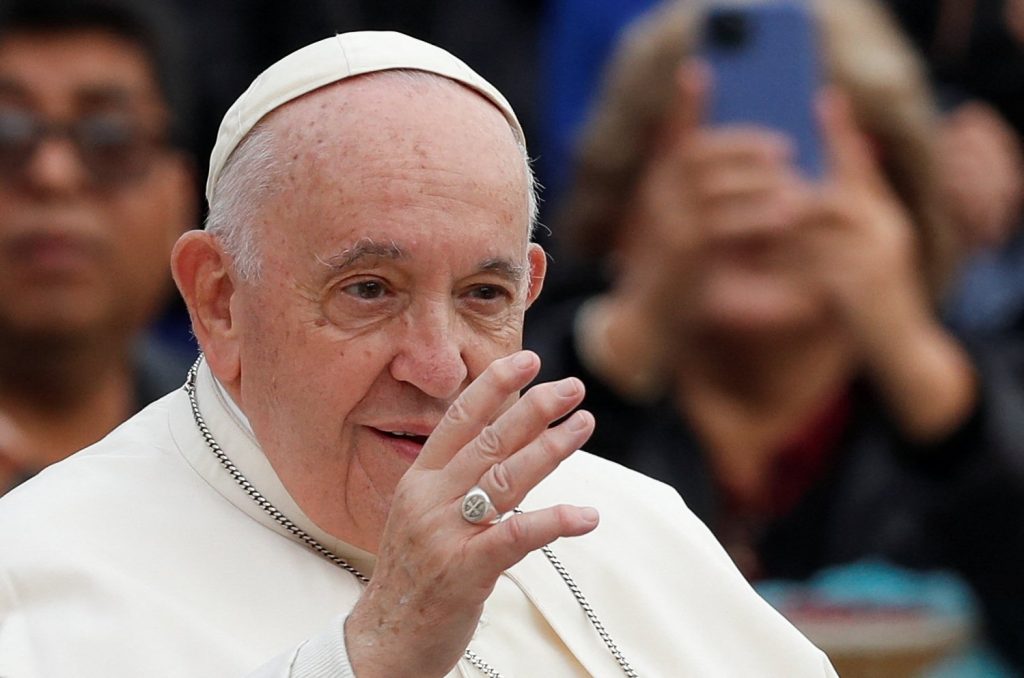
On March 13, we will celebrate the 10th anniversary of the election of Pope Francis as our Holy Father. Over the years, he has challenged us on many levels. He has an incredible sense of “freedom” which flows from his deep faith in God, intimate relationship with Jesus Christ and a highly developed sensistivity to the movement and promptings of the Holy Spirit.
Some of the hallmarks of this pontificate are an invitation to be merciful as God is merciful — to love with a creative freedom that goes beyond the human demands of justice, a love that is practical and concrete and recognizes every human person as a brother or sister with one common father, God. In a very real way, the preaching and practice of Pope Francis stirs our consciences in ways we are not accustomed, ways that force us to be willing to live the unconditional love of Jesus in a manner that makes us uncomfortable.
I am reading “The Lord,” a book by Romano Guardini. In one section, he reflects on the beatitudes and the following two chapters in the Gospel of Matthew, where Jesus speaks about the old law and the new standard of God’s kingdom, which he is ushering in by his very person.
The beatitudes reflect the life and ministry of Jesus and conclude with the teaching that, when we live these beatitudes, as Christ, we will experience persecution. A pivotal point in this teaching of Jesus concludes the fifth chapter: “Do not think I have come to abolish the law or the prophets. I have come not to abolish but to fulfill. … I tell you, unless your righteousness surpasses that of the scribes and Pharisees, you will not enter into the kingdom of heaven” (Matthew 5:17, 20).
By telling us we need to surpass the righteousness of the scribes and Pharisees, we gain an insight into how Jesus fulfills and surpasses the law and the prophets. Herein lies a key insight for me into the life and promptings of Pope Francis and the challenge he is asking us to embrace and live. Jesus gives examples of going “beyond the law” in the teachings we find in Matthew chapters 5, 6 and 7. For example: “You have heard that it was said, ‘You shall love your neighbor and hate your enemy.’ But I say to you, love your enemies, and pray for those who persecute you, that you may be children of your heavenly Father” (Matthew 5:43-45).
Some people take Pope Francis to task for not being clear about or even confusing the law of the Church. Rather, I think he is following the life and ministry of Jesus, who brought the creative love of God into each relationship he experienced. As he forgave sinners, healed the sick and challenged the scribes and Pharisees, Jesus was fulfilling the law in the perfect freedom he experienced in his relationship with the Father and, at the same time, revealing the perfect love of God to everyone he encountered, even those who persecuted him and eventually crucified him. Hence, “love is the fulfillment of the law” (Romans 13:10).
Jesus did not flinch from the law, as he often told those whom he forgave to avoid sin and to follow him.
Pope Francis is modeling for us the freedom it takes to live this creative, redeeming love of God, which does not ignore the law but is willing to “go beyond”, or “fulfill” the law to accompany and love God’s holy, faithful people, even in the face of our shortcomings and sinfulness.
May we have the grace to grow deeper in love with Christ, who came to fulfill the law in freedom with redeeming love. Happy anniversary, Pope Francis! Ad multos annos.